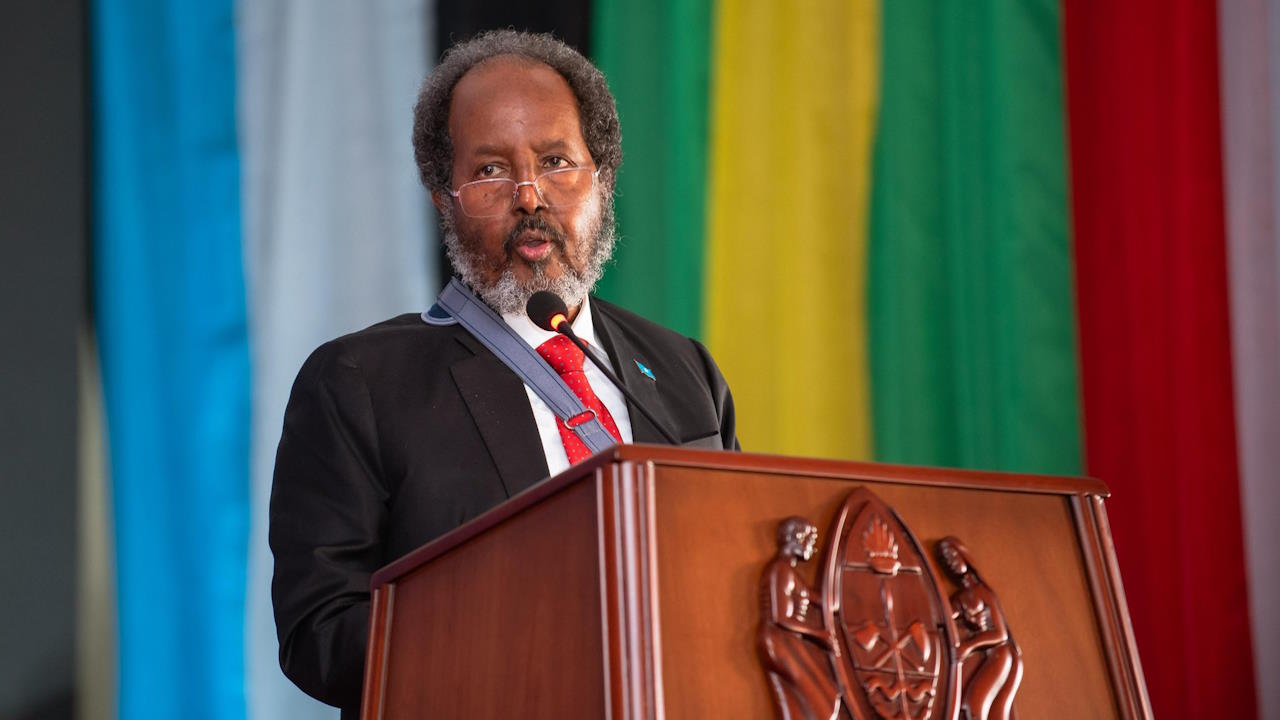
Somalia was admitted to the East African Community (EAC) on Friday at the 23rd ordinary meeting of the bloc’s heads of state in Arusha, becoming its eighth member state. This follows negotiations between the EAC and Somalia in August, hosted by the Kenyan government.
With the admission of the Democratic Republic of Congo (DRC) in March last year, both memberships represent the expansion of the EAC across East Africa and the Great Lakes region. The EAC is also considering membership for Ethiopia and Djibouti. This potential growth could increase the bloc’s population to over 800 million — a huge boost to the EAC’s single market.
Expansion increases the EAC’s competitiveness for foreign direct investment by creating an attractive trading space. Once Somalia’s security and governance challenges have been addressed, its inclusion could bring immense economic benefits to the region.
Through the EAC Customs Union, Somalia’s accession to the bloc is economically beneficial for the country and its immediate neighbours. Benefits include a reduction in tariff and non-tariff barriers, and integration into future infrastructure projects that will boost trade and reduce transport costs by linking EAC partner states. The inclusion of Somalia also brings over 3,000km of coastline — the longest in Africa — into the bloc, providing access to the Arabian Peninsula and boosting trade.
Entrepreneurs in Somalia have greater opportunities to invest, easing some of the social and economic pressures associated with the country’s isolation. Since the collapse of the Mohamed Siad Barre regime in 1991, cross-border trade with neighbouring countries has declined due to insecurity caused first by civil war and later by al-Shabaab terrorist attacks.
Although there are many benefits to joining the EAC, the depth of Somalia’s security problems raises critical questions about the bloc’s willingness and ability to ensure peace, security and regional stability. Article 3 of the EAC Treaty sets out the criteria for admitting new countries: they must adhere to the principles of good governance, democracy, the rule of law, human rights and social justice.
Somalia scores low on these criteria due to decades of civil war and violent extremism. Allegations of corruption and low levels of human rights and justice, due to the breakdown of state institutions and the inability to hold national elections, complicate its democratic credentials.
But all is not lost. In recent years, there have been promising developments in establishing a functioning administration and renewing the fight against terrorism. Although not defeated, al-Shabaab is retreating from some of its key territories.
EAC citizens are exempt from visa requirements and can travel freely within the region. Now that Somalia is part of the bloc, it must deal with the prospect of Somalia-based insurgents moving into member countries — an unregulated influx of economic migrants and the smuggling of contraband and weapons.
The recent introduction of national identity cards in Somalia is timely. The card could help facilitate free and fair elections in the country and potentially allow free movement of citizens within the bloc. Identity cards could also help control economic crime, money laundering and terrorist financing, and increase tax revenue collection.
Dr Hassan Khannenje, an expert on the Horn of Africa, told ISS Today that: “Somalia will be one of the least prepared countries [and] may not meet its obligations to the community when some member states are free-riding, especially when it comes to financial commitments.” South Sudan and Burundi have yet to pay their annual dues of $27.4mn and $7.4mn respectively, which were due by the end of 2022.
Without reconciliation talks between Somalia and Somaliland and the resolution of the simmering Las Anod border conflict, Khannenje foresees a diplomatic impasse as some EAC members have a diplomatic presence in both capitals, Hargeisa and Mogadishu.
Another question is whether the EAC can help manage Somalia’s security challenges and maintain regional stability. With the planned withdrawal of the African Union Transition Mission in Somalia (ATMIS), and a resurgent insurgency by the Somali National Army and clan militias, discussions on the post-ATMIS security infrastructure are gaining traction.
The EAC’s approach and capacity on security issues was demonstrated by its deployment of regional forces to the Democratic Republic of Congo just months after the Great Lakes country joined the bloc. The critical question is whether Somalia can expect similar support. Some EAC partner states are troop-contributing countries to ATMIS, so such an arrangement would require careful negotiation given the increased threat posed by al-Shabaab.
The EAC’s proactive approach could help resolve Somalia’s precarious security situation. On the political front, the bloc’s intervention through appointed dignitaries could enable the Somali Federal Government to engage in dialogue, popularise its amnesty offers to al-Shabaab fighters and facilitate grassroots dialogue in conflict-affected communities.
It is crucial for the EAC to adopt measures to ensure that East Africa maximises the benefits of Somalia’s accession; potential problems associated with Somalia’s acceptance must be addressed with foresight.
Halkano Wario, Regional Organised Crime Observatory Coordinator – East Africa, ENACT and Rahel Hassen, Project Manager and Senior Researcher, East Africa, ISS Nairobi
A version of this article was originally published by the Institute for Security Studies.






